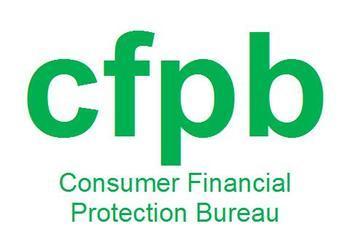 Consumer Financial Protection Bureau (CFPB) Acting Director Mick Mulvaney testified before the Senate Committee on Banking, Housing, and Urban Affairs on April 12, 2018, on the CFPB’s Semi-Annual Report for the period April 1 to September 30, 2017. Mulvaney was appointed Acting Director on November 25, 2017, after the CFPB’s first Director, Richard Cordray, resigned. Mulvaney is also the Director of the Office of Management and Budget.
Consumer Financial Protection Bureau (CFPB) Acting Director Mick Mulvaney testified before the Senate Committee on Banking, Housing, and Urban Affairs on April 12, 2018, on the CFPB’s Semi-Annual Report for the period April 1 to September 30, 2017. Mulvaney was appointed Acting Director on November 25, 2017, after the CFPB’s first Director, Richard Cordray, resigned. Mulvaney is also the Director of the Office of Management and Budget.
The CFPB was established in the Dodd-Frank Wall Street Reform and Consumer Protection Act of 2010 to be “an independent bureau within the Federal Reserve System,” regulating consumer financial products and services following the excesses of the 2008 financial crisis. Its mission is to ensure that consumers are given timely and understandable information about financial products such as mortgages, loans, and credit cards, and are protected from discriminatory, unfair, deceptive, and abusive practices. 12 U.S.C. § 5491. Under Cordray, the CFPB brought many enforcement actions against companies such as Meridian Title Corp., Freedom Debt Relief, LLC, Conduit Business Services, LLC, and Citibank. Some actions remain pending, but since Mulvaney took over, the CFPB has instituted no new enforcement actions. A 2017 financial audit of the CFPB by the U.S. Comptroller General found its operations to be in compliance with all applicable laws and regulations. Nevertheless, Mulvaney criticizes the CFPB in the Report as “far too powerful, and with precious little oversight of its activities. . . primed to ignore due process and abandon the rule of law in favor of bureaucratic fiat and administrative absolutism.”
President Trump’s appointment of Mulvaney as Acting Director has been controversial. When he resigned, Richard Cordray appointed the Deputy Director, Leandra English, to succeed him, in accordance with the Dodd-Frank Act (12 U.S.C. § 5491(b)(5)(B)), but President Trump relied on the Federal Vacancies Reform Act (FVRA), 5 U.S.C. § 3345, for authority to appoint Mulvaney instead. English immediately sued Trump and Mulvaney in U.S. District Court for the District of Columbia, arguing that the appointment of Mulvaney was unlawful, because the CFPB’s succession provision supersedes the FVRA. The District Court denied English’s motion for an injunction, and she has appealed to the D.C. Circuit Court of Appeals (English v. Trump, No. 18-5007). In a recent oral argument on that appeal, the judges expressed skepticism about the legality of Mulvaney’s dual positions at the OMB and the CFPB.
The dispute is significant because Mulvaney repeatedly sought to completely abolish the CFPB while he was in Congress, calling it a “sick, sad joke.” He has said the Bureau should approach regulation of the financial industry with more “humility,” and has requested no funding for the Bureau for 2018. He recently announced that the CFPB would no longer pursue an enforcement action against several payday lenders for misleading borrowers and charging illegal interest rates (payday lenders were allegedly among his major campaign donors while he was in Congress). He has also put the Bureau’s investigation into the Equifax, Inc., data breach, in which millions of consumers’ personal information was hacked, on hold. In addition, the CFPB’s 2013 guidance, directed at discriminatory practices by auto dealers in marking up interest rates on auto loans to minority purchasers, was revoked by the Senate on April 18. Sen. Mitch McConnell called that guidance a “particularly egregious overstep” by the Obama-era CFPB.
Against the backdrop of all of the challenges to the CFPB, in January, the D.C. Circuit held in PHH Corp. v. Consumer Fin. Prot. Bureau, 881 F.3d 75 (D.C. Cir. 2018), an action by a mortgage company challenging a $109 million fine the CFPB imposed on it in 2015, that the CFPB’s structure and independence are constitutional, noting that:
Congress has historically given a modicum of independence to financial regulators . . . that independence shields the nation’s economy from manipulation or self-dealing by political incumbents and enables such agencies to pursue the general public interest in the nation’s longer-term economic stability and success, even where doing so might require action that is politically unpopular in the short term.
Id. at 78.
The CFPB has announced in recent days that Wells Fargo Bank will pay $1 billion to settle charges tied to its mortgage and auto lending business following multiple scandals in the past few years. Unfortunately, it appears that none of the $1 billion will be paid directly to the victims of Wells Fargo’s abuses.
RELATED READING:
Semi-Annual Report of the Bureau of Consumer Financial Protection (April 2018)
Hearing, Senate Comm. on Banking, Housing, and Urban Affairs, “The Consumer Financial Protection Bureau’s Semi-Annual Report to Congress” (April 12, 2018).